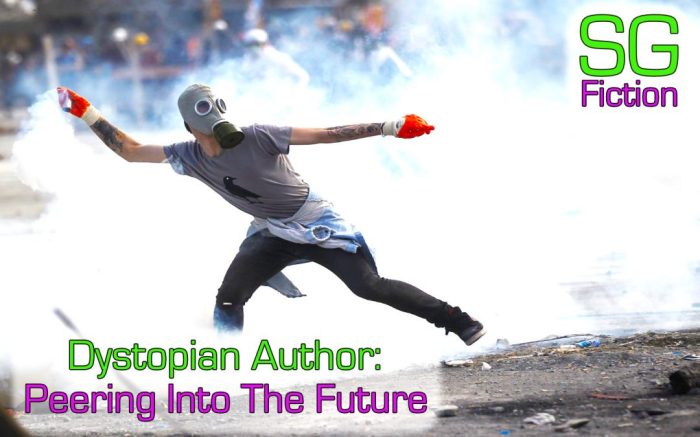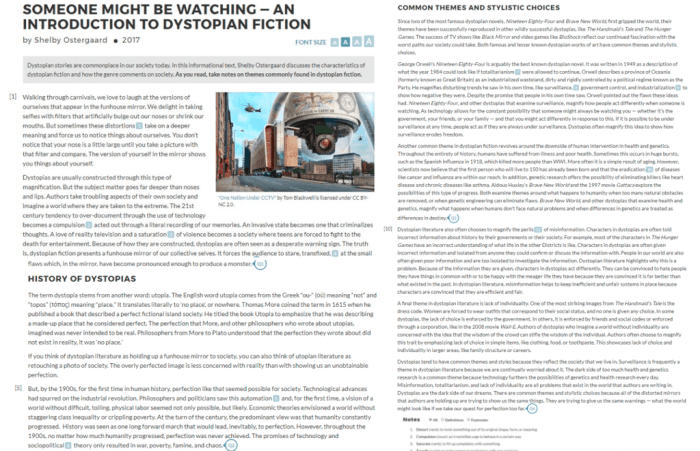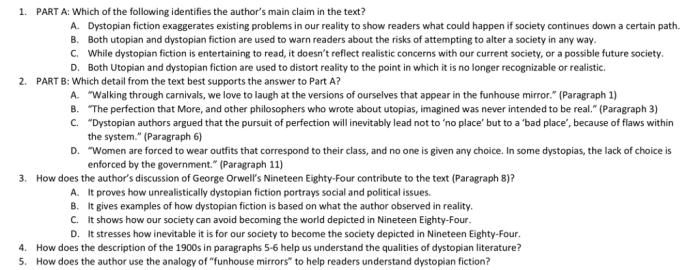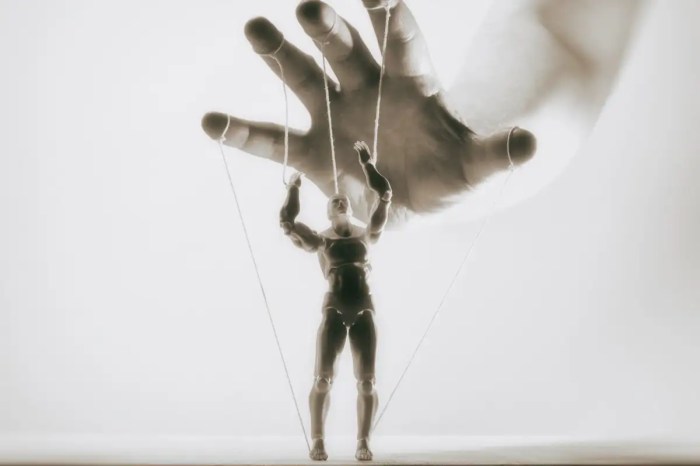Someone might be watching an introduction to dystopian fiction – Someone might be watching: an introduction to dystopian fiction. Dystopian fiction is a genre of literature that explores the negative potential of society. Dystopian works often depict societies that are controlled by oppressive governments, plagued by environmental degradation, or ravaged by war.
These works can be seen as warnings about the dangers of unchecked power and the importance of individual freedom.
Dystopian fiction has a long and rich history, dating back to the early 19th century. Some of the most famous dystopian novels include Nineteen Eighty-Four by George Orwell, Brave New World by Aldous Huxley, and The Handmaid’s Tale by Margaret Atwood.
These works have had a profound impact on society and continue to be read and studied today.
1. Definition and Introduction to Dystopian Fiction

Dystopian fiction is a genre of literature that depicts a society in which the negative aspects of human nature and societal organization are exaggerated, leading to a dystopia or a “bad place.” Dystopian fiction often explores themes such as government control, societal oppression, and environmental degradation.
Some well-known dystopian novels include:
- 1984by George Orwell
- Brave New Worldby Aldous Huxley
- The Handmaid’s Taleby Margaret Atwood
2. Themes and Motifs in Dystopian Fiction
Themes
Common themes explored in dystopian literature include:
- Government control
- Societal oppression
- Environmental degradation
- The dangers of technology
- The loss of individuality
Motifs
Recurring motifs and symbols used to convey these themes include:
- The Big Brother figure
- The totalitarian state
- The surveillance state
- The environmental wasteland
- The dystopian hero
3. Literary Techniques in Dystopian Fiction
Dystopian fiction often employs literary devices such as foreshadowing, symbolism, and allegory to create an immersive and thought-provoking experience for readers.
Foreshadowing
Foreshadowing is used to hint at events that will occur later in the story, creating a sense of suspense and dread.
Symbolism
Symbolism is used to represent abstract ideas or concepts through concrete objects or images.
Allegory
Allegory is a story that has a deeper, symbolic meaning beyond its literal narrative.
4. Historical and Social Context of Dystopian Fiction

Dystopian fiction has been influenced by historical and social events such as:
- The rise of totalitarianism in the 20th century
- The Cold War and the threat of nuclear war
- The environmental crisis
- The rise of technology and the fear of its potential misuse
Dystopian literature often reflects and critiques contemporary societal issues and concerns.
5. Subgenres and Variations of Dystopian Fiction: Someone Might Be Watching An Introduction To Dystopian Fiction

There are several subgenres of dystopian fiction, including:
Post-apocalyptic
Post-apocalyptic fiction depicts a world that has been ravaged by a catastrophic event, such as a nuclear war or a natural disaster.
Cyberpunk
Cyberpunk fiction explores the intersection of technology and society, often in a dystopian setting.
Biopunk, Someone might be watching an introduction to dystopian fiction
Biopunk fiction focuses on the ethical and social implications of biotechnology.
6. Impact and Influence of Dystopian Fiction

Dystopian fiction has had a significant impact on society and popular culture.
- It has raised awareness of the dangers of totalitarianism and societal oppression.
- It has inspired other genres of literature, such as science fiction and horror.
- It has been adapted into popular films, television shows, and video games.
Essential FAQs
What is dystopian fiction?
Dystopian fiction is a genre of literature that explores the negative potential of society. Dystopian works often depict societies that are controlled by oppressive governments, plagued by environmental degradation, or ravaged by war.
What are some examples of dystopian fiction?
Some of the most famous dystopian novels include Nineteen Eighty-Four by George Orwell, Brave New World by Aldous Huxley, and The Handmaid’s Tale by Margaret Atwood.
What is the purpose of dystopian fiction?
Dystopian fiction can be used to explore the dangers of unchecked power, the importance of individual freedom, and the potential consequences of social and political extremism.